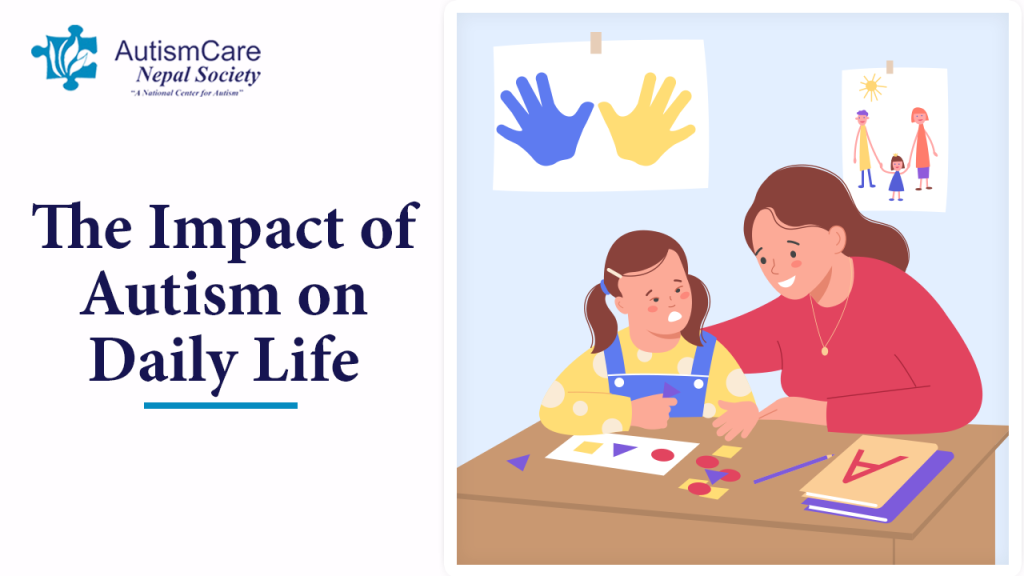Autism, a complex neurodevelopmental condition, significantly influences daily life for those affected and their families. This blog delves into the varied aspects of the impact of autism on daily life, offering insights into both challenges and strengths.
What is Autism?
Autism Spectrum Disorder (ASD) is a spectrum condition, affecting individuals differently in social communication, sensory processing, and routine preferences. This diversity underscores the varied impact of autism on daily life, with some requiring more support than others.
Social Interaction Challenges
One of the key areas where the impact of autism on daily life is most visible is in social interaction. Individuals with autism may struggle with social cues and small talk, which can lead to isolation. However, this doesn’t imply a lack of interest in social relationships; the approach to socialization is simply different.
Sensory Sensitivities and Daily Life
Many with autism experience altered sensitivity to sensory stimuli, making ordinary environments potentially overwhelming. Addressing these sensory sensitivities is crucial in reducing the daily life impact of autism.
The Need for Routine
A strong preference for routine and predictability is another aspect of autism that affects daily life. Sudden changes can cause distress, highlighting the need for careful planning and consistency.
Communication Differences
The spectrum of communication in autism is broad. While some might be non-verbal, others are verbal but face challenges with certain language aspects. This variability significantly contributes to the impact of autism on daily life.
Embracing Strengths and Unique Perspectives
While discussing the impact of autism on daily life, it’s vital to recognize the unique strengths and perspectives that autistic individuals bring. Their focused interests and detailed thinking can be invaluable in various settings.
Adapting Daily Routines
To accommodate the impact of autism on daily life, adaptations are often necessary. These might include structured routines, sensory-friendly environments, and educational methods tailored to their learning style.
Family Dynamics
The impact of autism on daily life extends to family dynamics as well. Families often adapt their communication and expectations, advocating for necessary support and services.
Conclusion
The impact of autism on daily life is significant, encompassing challenges and opportunities. Understanding and accommodating these differences are key to fostering inclusive environments where individuals on the spectrum can thrive. Embracing neurodiversity is essential for a richer, more diverse community.
